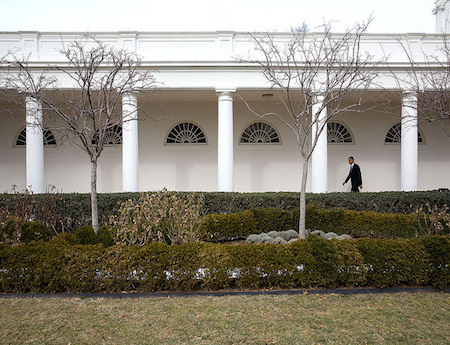Tech Companies Ask White House To Back Off Security Back Doors

The smarter way to stay on top of broadcasting and cable industry. Sign up below
You are now subscribed
Your newsletter sign-up was successful
Saying it would weaken cybersecurity and economic security, almost 150 privacy advocates, tech companies and others have signed on to a letter to the White House opposing technological "back doors" that would allow the government to access encrypted data.
Administration officials, the groups point out, have criticized Apple's decision to make new iPhones decrypted by default, suggesting Congress may need to legislate access to encryption the government can't break.
"We urge you to reject any proposal that U.S. companies deliberately weaken the security of their products," the letter says. "We request that the White House instead focus on developing policies that will promote rather than undermine the wide adoption of strong encryption technology. Such policies will in turn help to promote and protect cybersecurity, economic growth, and human rights, both here and abroad."
Among the letter signers were Google, Apple, Microsoft, the Consumer Electronics Association, Free Press, Reporters Committee for Freedom of the Press, the New America Foundation, Computer & Communications Industry Association (CCIA) and a veritable host of others.
“Essential tools to protect against cybercrime and national security threats are undermined, not aided, by purposely inserting security vulnerabilities into secure products," said CCIA president Ed Black. "In addition to misperceptions about the security issues involved, it is central to our Constitutional freedoms that it should not be an easy thing for the government to read our communications or avail itself of the most intimate details of our lives—regardless of the motivation or context. Limiting encryption is not only abusive of the rights of US citizens, but will also cause serious problems with our allies and trading partners.”
Separately, Congress is working on legislation, the USA Freedom Act, that its bipartisan backers say would end the indiscriminate bulk communications metadata collection by the National Security Agency. The alternative is likely a straight reauthorization of PATRIOT Act authorities, including the bulk collection, since they expire at the end of this month.
The smarter way to stay on top of broadcasting and cable industry. Sign up below
Contributing editor John Eggerton has been an editor and/or writer on media regulation, legislation and policy for over four decades, including covering the FCC, FTC, Congress, the major media trade associations, and the federal courts. In addition to Multichannel News and Broadcasting + Cable, his work has appeared in Radio World, TV Technology, TV Fax, This Week in Consumer Electronics, Variety and the Encyclopedia Britannica.

